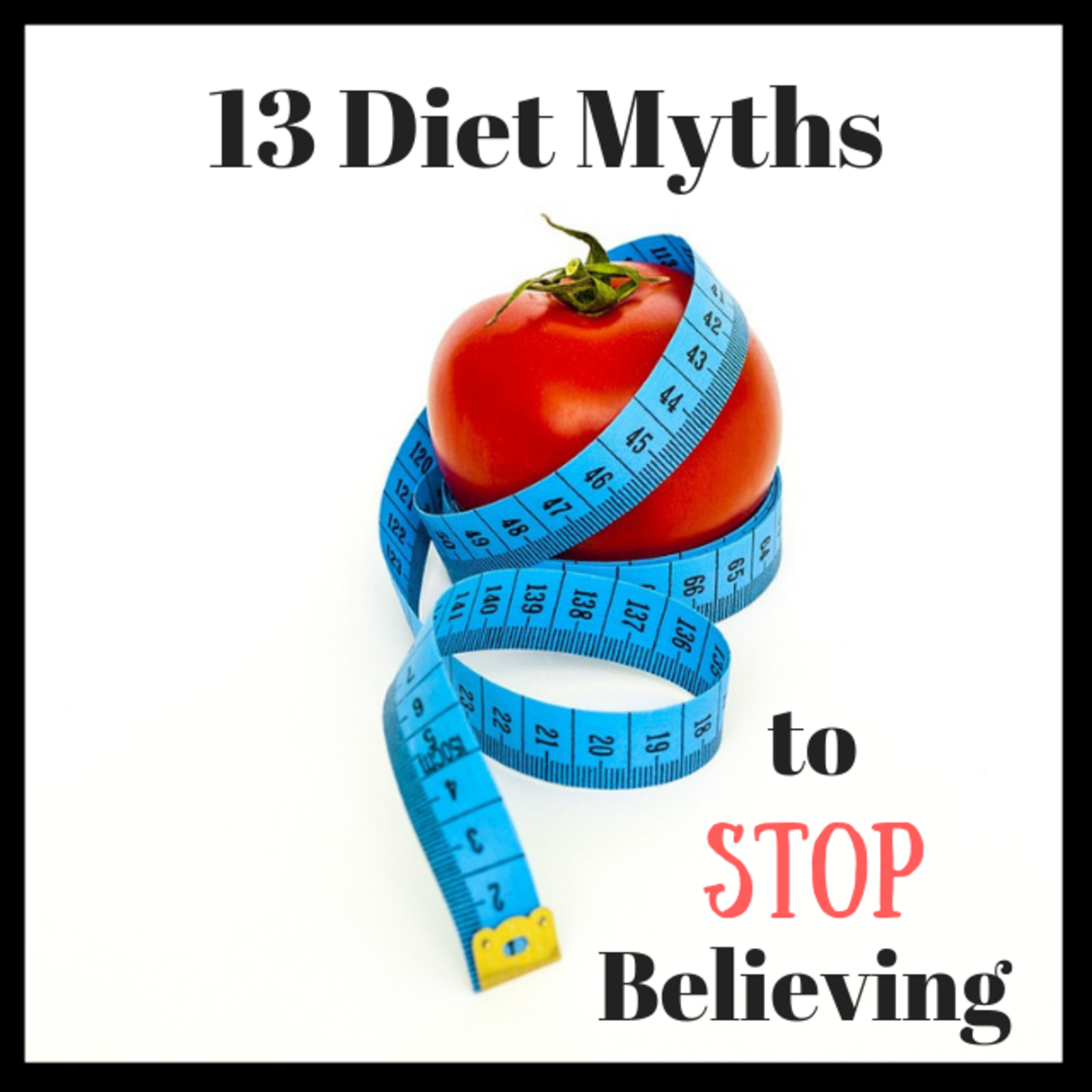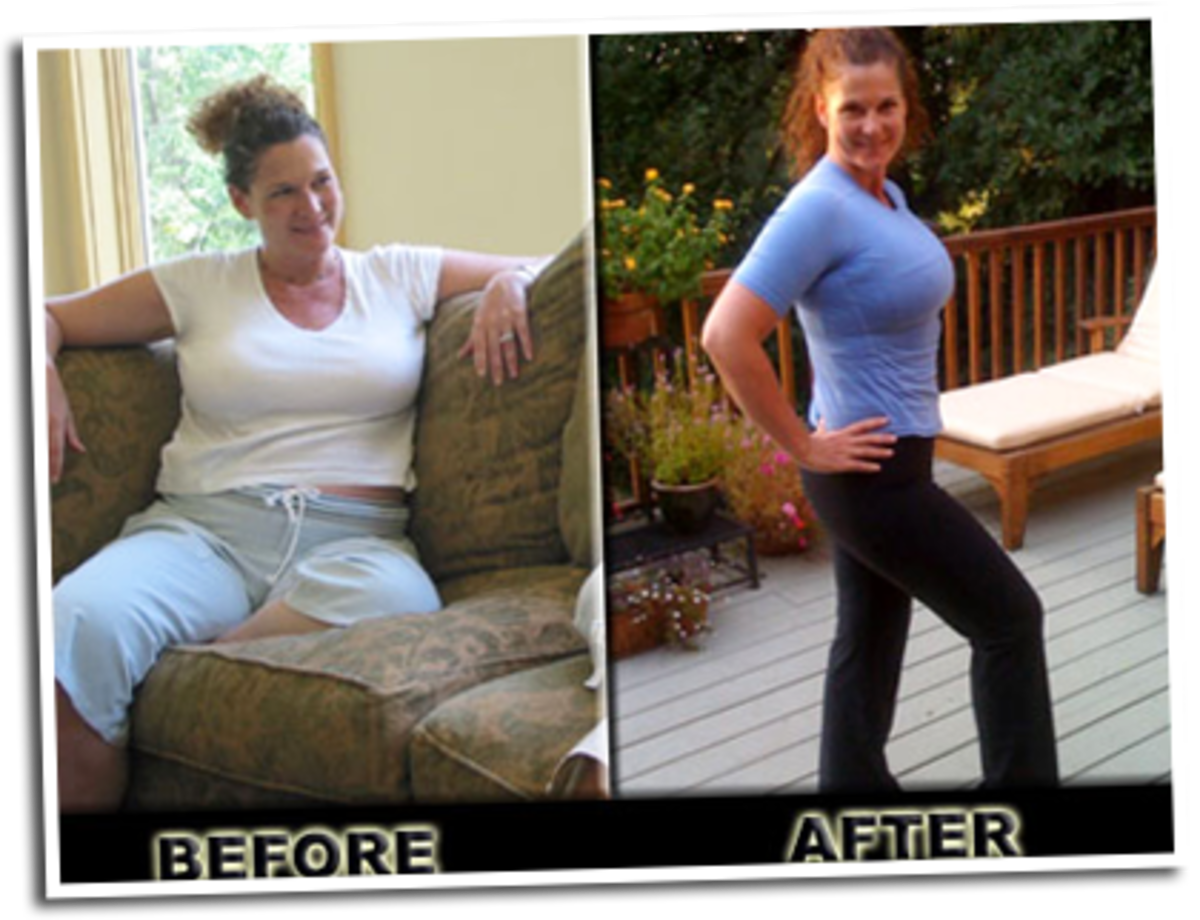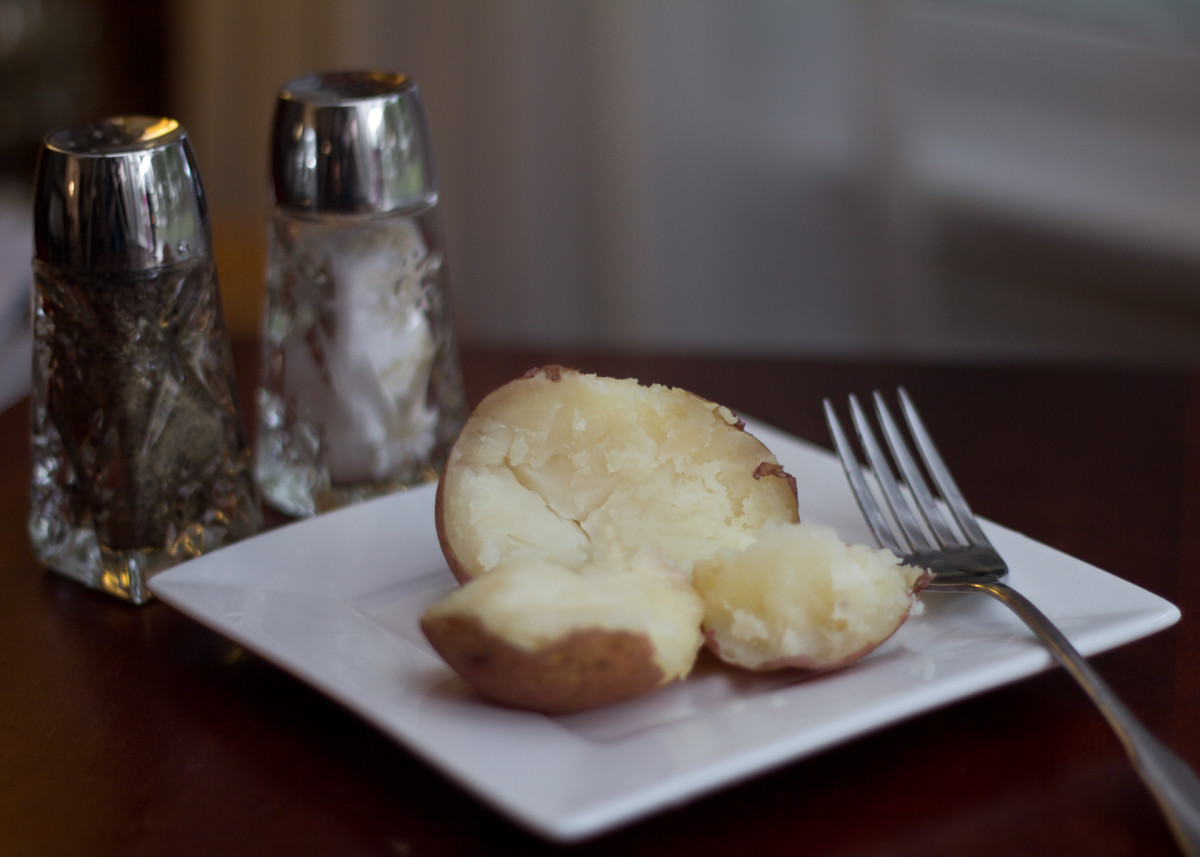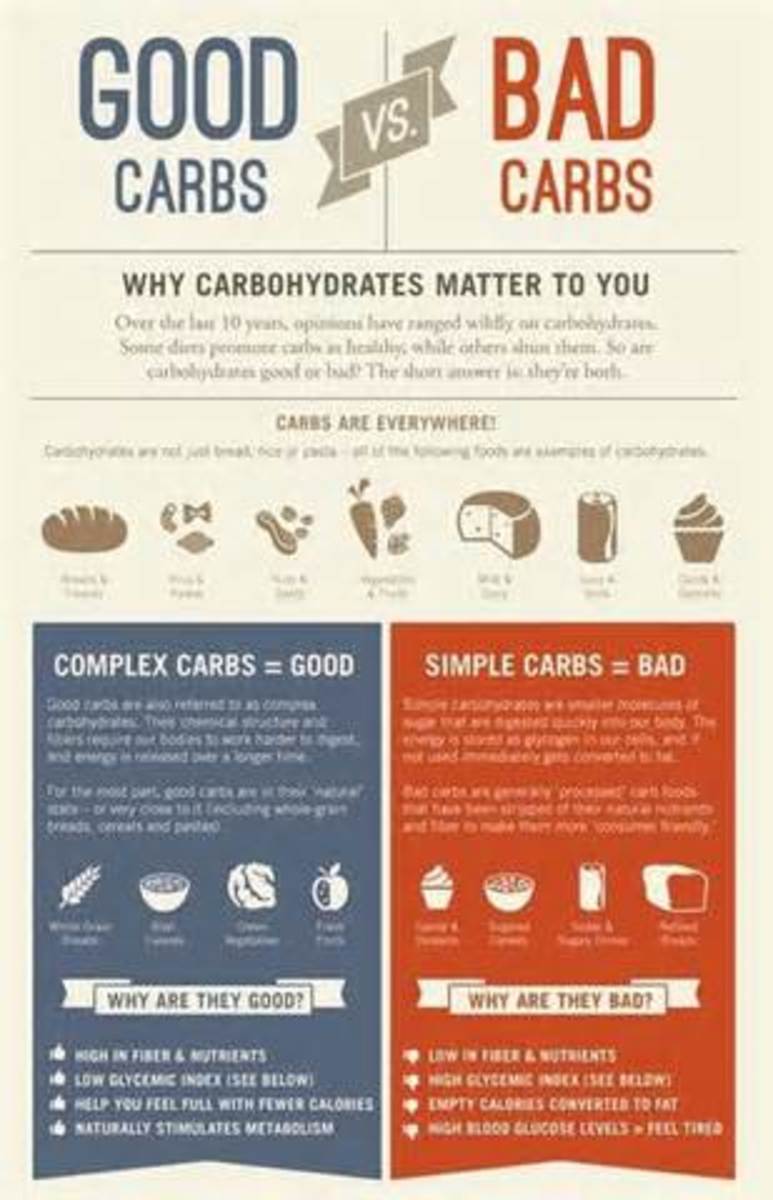- HubPages»
- Health»
- Diet & Weight Loss»
- Diet Advice & Tips
The Monkey Diet
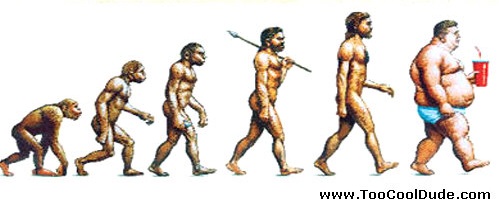
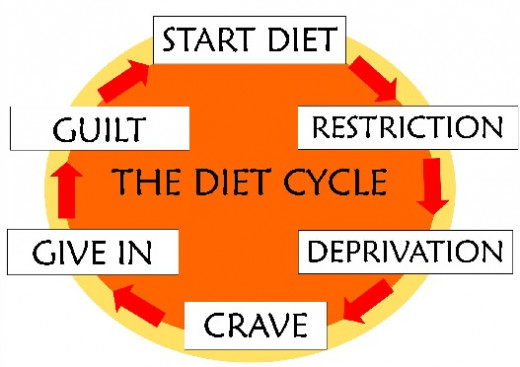
Why Diets Fail
For most of my adult life I have had to fight against becoming overweight. I was always exercising and watching what I ate, in order to keep my weight under control, but it became more and more difficult as I got older. That's all changed now. In the last few years, I've found it easy to keep my weight down and can now eat as much as I like without putting on weight. So how is this possible?
The big problem for most people, (including me), is that we have been sold a lot of dubious information by the diet industry. An example of this is the calorie myth. How do scientists know how many calories are in food? They simply set it on fire and from the ash that is left; they guess how many calories is in it! Unfortunately, the way a human body makes energy from food, is not always the same way fire does it. So counting calories is not a very accurate indication of whether certain foodstuffs will increase your weight or not, and can lead us astray.
I have been around long enough to see how diet fashions change. Back in the 1960's we were told that bananas and potatoes were fattening because they were full of starch. Today, the banana diet is popular. People in places like Japan and Australia lose weight by eating lots of bananas. Eating potatoes is now also being recommended by some dieticians as a weight-loss tactic. It seems that bananas and potatoes have “resistant starch” in them. It's claimed that this is good for weight loss, since resistant starch acts like fibre in our bodies and makes us feel full for longer than other foods.
We were also told back in the 1970's and 80's that eating fat was the number one cause of weight gain. Now, even that is being challenged, as nutritionists move on to attacking sugar as the primary cause of obesity. It's no wonder people are confused about what foods they should be eating, when diet experts keep changing their stories and contradicting each other.
One of the big problems in the diet industry is that many diets are starvation ones. That is to say, you eat less food than the body needs and so you have to overcome your hunger pains to stick to the diet. They might work in the short term, but in the long term they fail, because people eventually become so hungry they abandon the diet. Another problem is that when on a starvation diet, people’s metabolism slows down, resulting in paradoxical weight gains while eating less food.
So what are needed are foods that can satisfy our hunger, but won’t lead to weight gain. What are they? Surprisingly, these foods are no secret and anyone with any knowledge of nutrition can tell you what they are. It is just that we are fed so much contrary advice that we become completely bamboozled about what we should be eating.
We need to get back to basics. Back in the 19th century Charles Darwin showed that we evolved from monkeys and apes. Our bodies have been designed over 50 million years of evolution to eat the same diet as other primates: fruit, vegetables and nuts. Humans still have the same teeth and digestive systems as apes and monkeys. We have not changed physically and our diet should be the same as it was in the past. If we go back to a monkey diet we will find that we can eat as much as we like without putting on weight. Here's a list of diets that incorporate this.
Gorilla eating vegetable
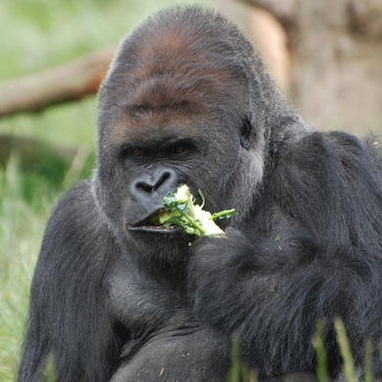
Salads
Years ago, my wife and I had a six months' holiday in Australia. In the warm climate, we decided to eat a salad every day as our main meal. We both lost weight easily, didn't starve ourselves and even sometimes ate cake, biscuits and ice-creams. By the time we traveled back to England we were both very slim, having both lost over two stone in six months, (28 pounds, 12 kilos). Unfortunately, in the colder English weather, we gradually gave up eating salads and a year or so later, we were back to our original weights.
Salads are simply raw vegetables and are what our ancestors ate when foraging on the ground. It's accepted by nearly everyone that if you eat salads as your main meal every day, you will lose weight. The reason for this is that raw vegetables are very high in dietary fibre. Fibre slows down the rate our bodies digest food. As a result, we feel fuller for a longer period of time. Also, some raw vegetables, like cucumber, take a lot of energy to digest. For this reason, some people claim it is a waste of time eating them, but it's not. Raw vegetables are extremely rich in the nutrients that the body needs.
The trouble is that most people do not like eating salad all the time. It’s not a popular food. To make matters worse, many people when they eat salad put on salad cream or vegetable oil, to make it palatable. Salad cream tends to be full of fat and sugar, while the types of vegetable oils we generally buy in supermarkets are bad for our health. (I personally don’t like salad cream or oil on my salads, and hate it if you go anywhere and they put these things on the salad, without giving you the option of not having it.)
The problem with vegetable oil is that it will become rancid within a few days, so our very clever scientists have found ways to overcome this problem. They do this by heating it up to extremely high temperatures and adding chemicals, to destroy the nutrients that cause the oil becoming rancid. As a result, not even bacteria or fungus will eat it!
You end up with oil that you can keep at room temperature for years. You can even put this same oil in a car or tractor to fuel a diesel engine! Unfortunately, although this type of oil is great for fuelling diesel engines, the same cannot be said for the human body. Because it is devoid of nutrients it becomes a major cause of obesity. It seems the human body finds it hard to process oil like this and ends up storing it as fat.
Salads might be all right with cold-pressed oils poured on them. (It has to be oil that will go rancid) and perhaps salad cream might not be too bad, if you do not overdo it.
Another way to get around the problem of people not liking salads is that some dieticians advocate we juice raw vegetables. (They call this juice the trendy name of 'smoothies'). The problem with this is that vegetable juicers tend to smash up the fibre in the food, something we need to stay full and slow down the rate of digestion. Also, as it is so much easier to consume vegetables in liquid form, people tend to devour far more of them.
Eating a salad takes a reasonable amount of time and effort, but you will feel you have eaten a lot of food. Drinking the same amount down in liquid form wouldn’t be so difficult, but it will seem like just another drink and not a proper meal. It would also digest more quickly, as a lot of the fibre has been broken up. Juicing vegetables means the fibre content will be less and it is far easier to consume a lot more of it.
It's not all bad, though. If you don’t like eating salads all the time, or you feel you need to put a lot of salad cream or processed vegetable oil on them, then juicing is still a good option. Apparently people still lose weight by juicing vegetables, though it may depend on what else you eat. Perhaps it is not a good idea to buy vegetable juices from supermarkets, as you don’t know what has been done to them by some clever food manufacturer. There may be hidden sugars in them, or they might be pasteurised, (heated up to a very high temperature), which destroys vital nutrients in the juice. It would be better to juice your own vegetables, because at least you know what’s in the drink.
So juicing vegetables can help us lose weight, and many people recommend it, even though it won’t be as good as eating raw vegetables. For people who don’t like eating salads, it is an acceptable alternative. The more raw vegetables you can add to your diet the better. If you don’t want to eat a salad as a main meal, it may still be helpful to have a side salad with your meals instead. Whatever is easiest for you to do.
The Fruit Diet
I have a relation in Australia who did some of his work in the Australian outback. His job involved driving to remote areas, miles from anywhere, so he took sandwiches with him to eat at lunch-time. There are no places to buy food, in the Australian bush. Eventually he became tired of eating sandwiches and started taking more fruit with him, especially since it would also help quench his thirst in the Australian heat.
In the end he gave up the sandwiches completely and only took fruit with him. He found that he began to lose weight and discovered that the more fruit he ate, the slimmer he became. Fortunately, he liked fruit and so it was easy for him to do this. Any time he found he was gaining weight, he simply added more fruit to his diet, and his weight decreased.
This is not surprising, as the preferred diet of apes and monkeys is fruit. So because of our primate ancestors, our bodies have become adapted to a fruit diet.
The fruit diet for humans has been around for a number of years. It has worked for a lot of people because, like raw vegetables, fruit is high in dietary fibre. Unfortunately, as with salads, not everyone likes eating it.
Some people prefer to eat cooked fruit, which is reasonable, although cooking does destroy the vitamin C within it. Another problem is what people add to it. Many people like apple or blueberry pies, but adding sugar, white flour and margarine to the fruit is not a good idea. All these things are very fattening, not to mention chock- full of additives, if brought at a supermarket.
Other people choose to eat dried fruit. Experts generally say this is a bad thing because dried fruit is high in sugar, but what we are not told is that dried fruit is also high in fibre. The only difference between ordinary fruit and dried fruit is that the water content has been removed. So you can go on a fruit diet by eating dried fruit, rather than ordinary fruit. Dried fruit is very sweet and is a big help in losing weight for people who crave sweet food.
Some people also juice their fruit. This can be worse than juicing vegetables, because fruit tends to be higher in sugar. More sugar will be released as the juicing machine smashes up the fibre, but fortunately it will still have some fibre left in it.
Juicing your own fruit is a reasonable thing to do, but it's not a good idea to buy it from supermarkets. You just don’t know what has been done to it. If you really have to drink fruit juices, keep away from clear ones, as this shows that the fibre has been completely removed. A cloudy fruit juice drink will still have some fibre in it.
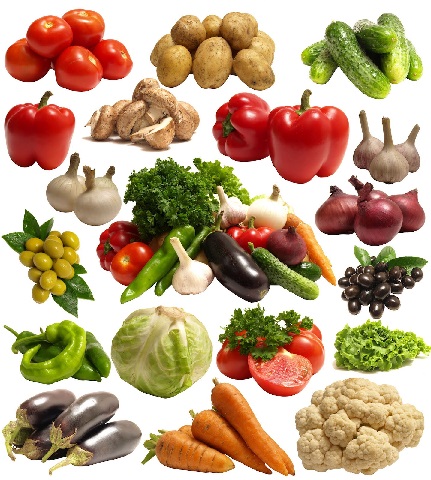
The Vegetable Diet
If you don’t like eating raw vegetables, you can get round this by eating cooked ones. It's true that you will not lose the same amount of weight by eating cooked vegetables rather than eating them raw, but cooked vegetables are still high in fibre. Also, cooking partly digests our food, and the advantage of this is that more foods are available for us to eat. Foods like potatoes, cabbage, turnips and spinach are difficult for us to eat and digest when eaten raw, but are much more palatable when cooked.
Many people claim they eat vegetables and haven’t lost weight. But these same people will perhaps only have two types of vegetables with their meals and would never dream of having a meal consisting only of vegetables. (I personally like meals consisting only of vegetables and eat them often). Health experts claim we need more than five different types of fruit or vegetables every day. Some dieticians have gone even further and claim we should eat, every day, nine different types of vegetables and fruit.
One of the reasons why people don’t eat enough vegetables is the protein myth. We are told that protein is essential for our health. That generally means we need to eat a lot of meat, which is high in protein. This is all nonsense, as there is protein in all forms of food, except white sugar. Also, when the body digests protein, all it does is break it down into glucose and fat, which is what you get when eating vegetables. Protein advocates try to pull the wool over our eyes by telling us that meat is a, “complete protein”, and high in amino acids. This doesn’t mean anything, as amino acids are again present in all foods that haven’t been processed.
Our monkey and ape ancestors never had to worry about having high- protein food and the only meat most primates eat is insects and sometimes shellfish, if they live near the sea.
Most people feel they need to eat some form of meat with their meals but unfortunately meat doesn’t have any fibre in it. As a vegetarian I have had this problem, generally being told I need to have a meat substitute with my meals. It's complete baloney, and is the reason why vegetarians and vegans get so fed up with the protein myth.
You can lose weight easily if you eat far more vegetables than you do at present. Vegans, who only eat plant- based diets, find it easy to keep their weight down, providing they don’t eat any processed foods, which, I admit, is the mistake I once made.
The Whole Food Diet
Some people lose weight by eating what they call the whole food diet, (though it can also be called the high fibre diet). One of the major causes of obesity is processed foods, and this even caught me out, even though I thought I knew a lot about nutrition.
As a vegetarian I naturally eat a lot of vegetables. I don’t eat much fruit because I don’t like it, so the only fruit I eat is bananas or dried fruit. I only eat salads in the middle of summer. So my main diet is cooked vegetables. I used to eat some processed food, but didn’t think it was a problem. I was to learn otherwise.
I knew that sugar leads to weight gain, but had the attitude that as long as I didn’t eat too much of it, it was all right. Every week I would eat some biscuits, cake, chocolate bars and ice-cream, but thought I only ate a moderate amount of these things. I was also unaware of how much sugar was in processed foods. Like many people, I was worried by fat as well as sugar. I had problems keeping my weight down, and as I got older, this became increasingly difficult.
Then I saw a video on Youtube called “Sugar: The Bitter Truth” by Dr. Robert Lustig. This video made it clear that refined sugar was the number one cause of obesity. (He also questioned the idea that eating fat causes people to put on weight). So I cut out eating biscuits, cake, chocolate and ice-cream. I began to read far more closely what the labels said on the food my wife bought in the supermarket. I soon discovered that nearly every type of processed food has sugar in it. So I had to give up eating things like tinned soups, baked beans, pizzas and some breakfast cereals, because of the hidden sugars within them. These were foods I previously thought were perfectly ok.
I am now on a whole food diet. I keep away from most processed foods and only eat vegetables, dried fruit, nuts, oats, bananas, brown bread, with some butter, cheese and eggs. (I prefer coconut milk, to cow’s milk.) As someone said, “only eat foods that come from a farm and not a factory”.
Since keeping away from processed sugar, I have been slowly losing weight. I lost 3 stone in 3 years, (42 pounds, 18 kilos). In the last year my weight has stabilised and I am now pretty healthy with a flat stomach for the first time in years. I don't have to worry about putting on weight. I eat as much food as I always have, but the foods I now eat don't lead to weight gain. I rarely feel hungry like I once did. For me personally, eating whole foods and not processed foods, has been a big help in losing weight.
The Protein Myth
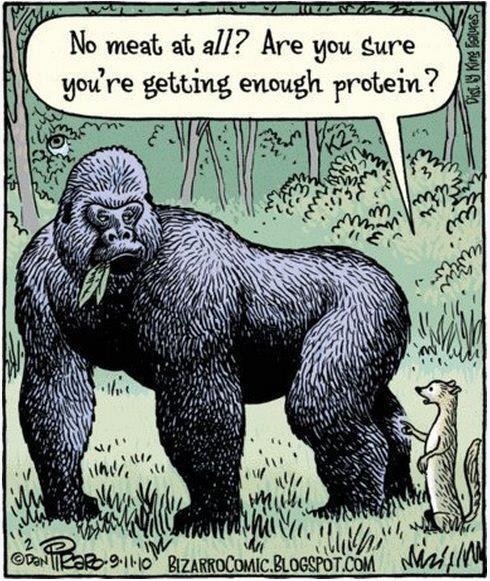
The Atkins Diet And High Fat Diets
There is no doubt that the Atkins diet and other similar diets that are high in meat, do work in losing weight, mostly because these diets don’t have refined sugar in them. The same is true of high fat diets, which proves that it is refined sugar and not fat which is the major cause of obesity.
The advocates of these diets claim that carbohydrates are the main cause of weight gain, and do not distinguish between simple carbohydrates and complex carbohydrates. Simple carbohydrates are not natural foods but processed foods like refined sugar, white flour and white rice. They are foods where all the fibre has been removed. Complex carbohydrates are foods with fibre in them, like all fruits and vegetables that haven’t been processed in any way. They are vital for our health.
There is also the Paleo Diet, which claims our ancestors mostly ate meat. This view of pre-history is all about “man the mighty hunter” and ignores completely the role of women in gathering fruits, vegetables and nuts. It also ignores the fact that we evolved from plant- eating monkeys and apes.
Being a vegetarian, I am not a fan of these types of diets and I personally don’t think they are good for your health. I also don’t understand why people want to have animals killed to feed themselves, when we don’t need to do this. (I was motivated to be a vegetarian when I leant how cruel farmers and slaughter men can be towards animals.)
The Paleo Diet people have also jumped on the anti-sugar bandwagon. They deceive people by claiming that because fruits and vegetables have sugar in them, they will also cause weight gain. They don’t mention that sugar trapped within vegetable fibre is not a problem; it is only sugar without fibre that causes obesity.
As athletes know, sugar is the best fuel for our body, but people have to train like an athlete to burn this sugar, to prevent it from getting stored as fat. Evolution has designed the human body to only eat sugar trapped in fibre. It is a shame that our clever food manufactures have discovered ways to remove fibre from food and sell it to the general public.
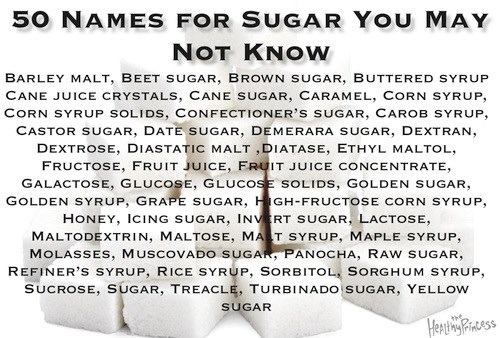
Howler Monkey
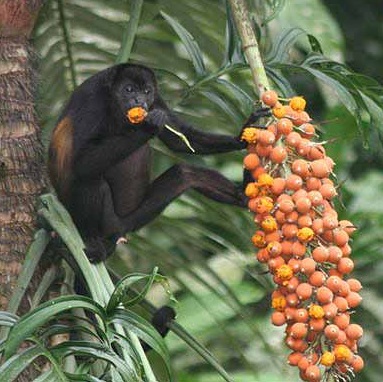
Summary
To sum up; if you want to eat foods that will not increase your weight, then the best diet is one of raw vegetables and fruit. After all, this is the food our primate ancestors were eating for over 50 million years. Unfortunately not all people want to do this, so you can compromise by consuming cooked or juiced fruit and vegetables, or eat dried fruit.
The diet industry has told us for many years that nuts lead to weight gain as they are high in fat, but we now know that fat is not the cause of weight gain. So it is another food we can eat, without worrying if it will make us obese. Again, this is a food that monkeys and apes have been eating for millions of years.
If you have problems with your weight, then keep away from foods like refined sugar, processed vegetable oils and margarine. Unfortunately, food manufactures have many different names for sugar and I admit this once did deceive me. So I had to look on the internet and find out what these different names of sugar are. It will be very difficult to find any processed food that doesn't include them.
Another problem if you want to become slim is alcohol, which is simply fermented sugar. Drinking alcohol every day will cause weight gain. Energy drinks and soft or soda drinks are all full of sugar and should also be avoided. Worst of all are biscuits, cake, salad cream and ice-cream, which combine fat and sugar and are extremely bad for any diet.
White flour can also be a problem, though how much I don’t know. Some people claim it is as bad as white sugar. I eat as much brown bread as possible but find it hard to avoid eating white flour completely. This is particularly true in Australia. The last time I went there, I found it impossible to buy brown bread. They even had the audacity to sell white bread and called it wholemeal!
Our primate ancestors didn't drink cow’s milk either and I have heard of people who have lost weight simply by giving up all cow’s milk products. Some people do have problems with cow’s milk, probably because it is not a natural food for humans.
Last point. I have discovered a way to eat cake without putting on weight. I bought a diabetic cook book and found it contained cake recipes that don’t use sugar. They use things like dried fruit as sweeteners, though my wife has also used xylitol (wood sugar) in cakes. This to me is the best sugar substitute. It's similar to what monkeys eat, because they eat wood bark and this is where you find wood sugars. I have used it freely without putting on weight and as a bonus it is also good for your teeth!
So keep away from starvation diets and processed foods and eat proper whole foods that are full of dietary fibre. In my experience, this is the easiest and most painless way to lose weight.







